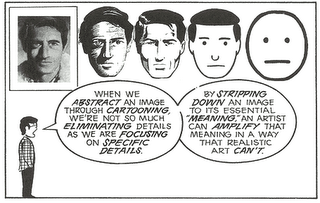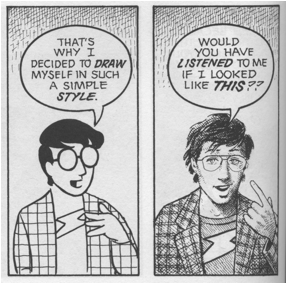There's recent research indicating that people who know spoilers ahead of time actually enjoy them more than people who are surprised -- that anticipation increases satisfaction.
This was -- and here's where I start to get a little pretentious -- this was the view of the ancient Greeks at the very dawn of theater.
(Did I just spell "theater" with an "-er"? Guess I'm not being that pretentious.)
When I was a freshman in high school, we read Oedipus Rex in English class with my favorite teacher. He told us the twists upfront: that Oedipus killed his father and married his mother. Of course, the whole play is a mystery about Oedipus slowly piecing together the clues toward that ending.
One of my classmates indignantly asked the teacher why he told us the ending before we read it. The teacher responded, "Because the audience in those days would have already known too."
Sophocles, I think it's safe to say, understood storytelling. He understood suspense. And he understood that it's entirely possible to build suspense even if the audience knows what's going to happen.
And at this point I offer a Warning: The rest of this post is written around major spoilers for both Game of Thrones the TV series and Song of Ice and Fire the book series. Including bits that haven't been on the show yet.
Of course, if you believe what I've just said in the preceding paragraphs, you'll keep on reading anyway, spoilers or no.
I've spent the last week and a half or so catching up on Game of Thrones. But I already knew, with a couple of exceptions, what was going to happen, as I'm already all caught up on the books.
So I knew about the Red Wedding. I knew what was going to happen. I anticipated it.
And it was still affecting as hell.
Whether it was more enjoyable than the first time, more enjoyable than reading it -- well, that's an interesting question.
I will say that there was a lot less confusion in watching it as a foregone conclusion.
The big bits in the books, the shocking parts, the stabby parts -- I find that I wound up going back and rereading them, several times, to make sure I'd really read what I'd just read. Ned's death, the Red Wedding -- and here's the part where I get into stuff that hasn't happened on the show yet, so this is your final warning --, Joffrey's death, Jon's stabbing -- my reaction to those was, as much as anything, Wait, what? I had to go back, read it again. Particularly with Joffrey's death -- I had a feeling that the other three examples I've just given might happen; certainly there was plenty of foreshadowing that something bad was going to happen -- but Joffrey's death caught me completely by surprise. (Perhaps because it's also the only major twist in the series that gives readers something they want instead of hurting them.)
Watching it on TV, knowing what was going to happen -- it increased the air of foreboding, the grim knowledge that the outcome was inevitable. I clenched my teeth, clutched the arm of the couch, and caught every single little bit of foreshadowing as it built.
And speaking of Joffrey's assassination, every bit of foreshadowing lands harder knowing that it's coming. Margaery Tyrell and the Queen of Thorns feigning friendship to Sansa is that much more cruel, knowing that they're not merely pumping her for information but setting her up to take the fall for his murder.
Then again, I also paid special attention to every change, every surprise, every moment that wasn't in the books. Robb's wife being stabbed repeatedly right in the belly -- Jesus Christ, that may have even topped the book for gruesomeness. Grey Wind dying in a cage instead of putting up a fight. Catelyn killing Lord Frey's wife instead of a handicapped grandson. Roose Bolton being the one to kill Robb himself, rather than just sitting back and watching. Every alteration was that much stronger for being unexpected -- and I think the biggest question in my head right now is how Shae's story is going to turn out, since it clearly won't be the same way as in the book. (Though, on the other hand, it could simply be the obvious -- Tywin finds out about her and makes good on his threat. Which unfortunately would leave us without the last interesting little twist we learn about Tywin, but I think that ship's already sailed.)
It is, as you'd reasonably expect, hard to quantify something like enjoyment. But I think good stories are ones that don't rest entirely on twists and can still be enjoyed even if you know what's going to happen. Indeed, I'd sussed out who Jon Snow's real parents were by the end of the first book, but that hasn't decreased my anticipation for the big reveal when it comes.



